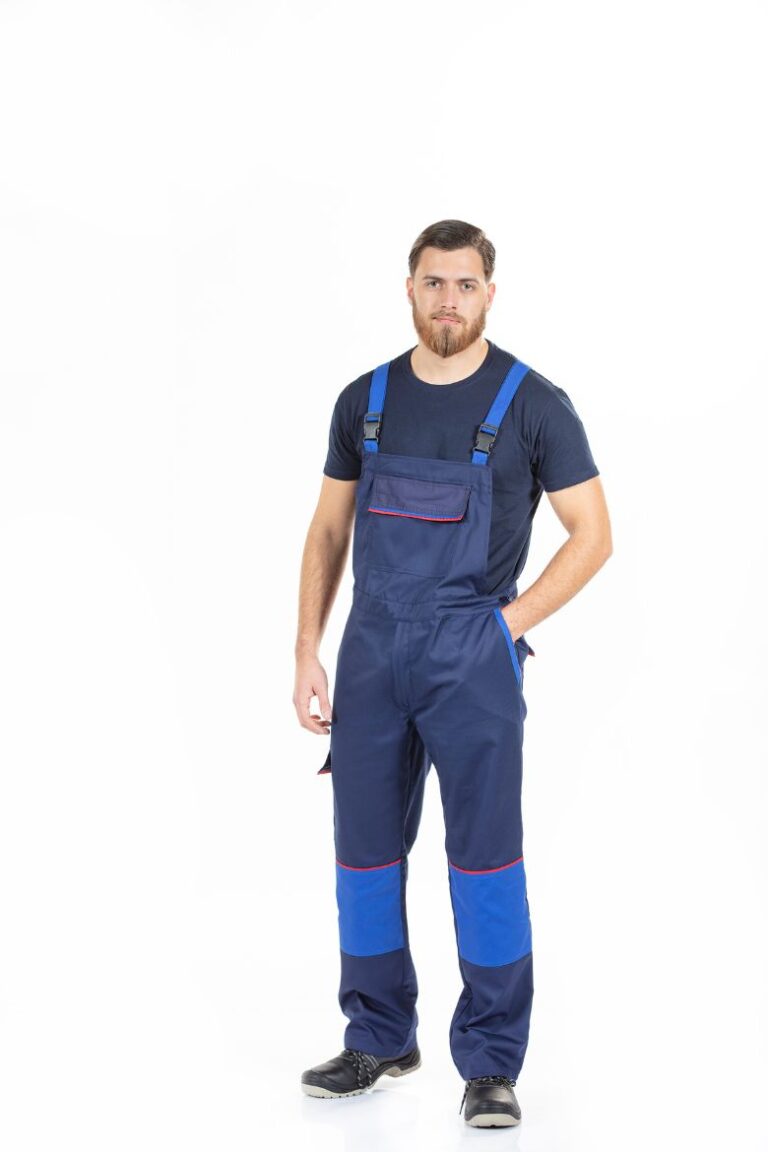
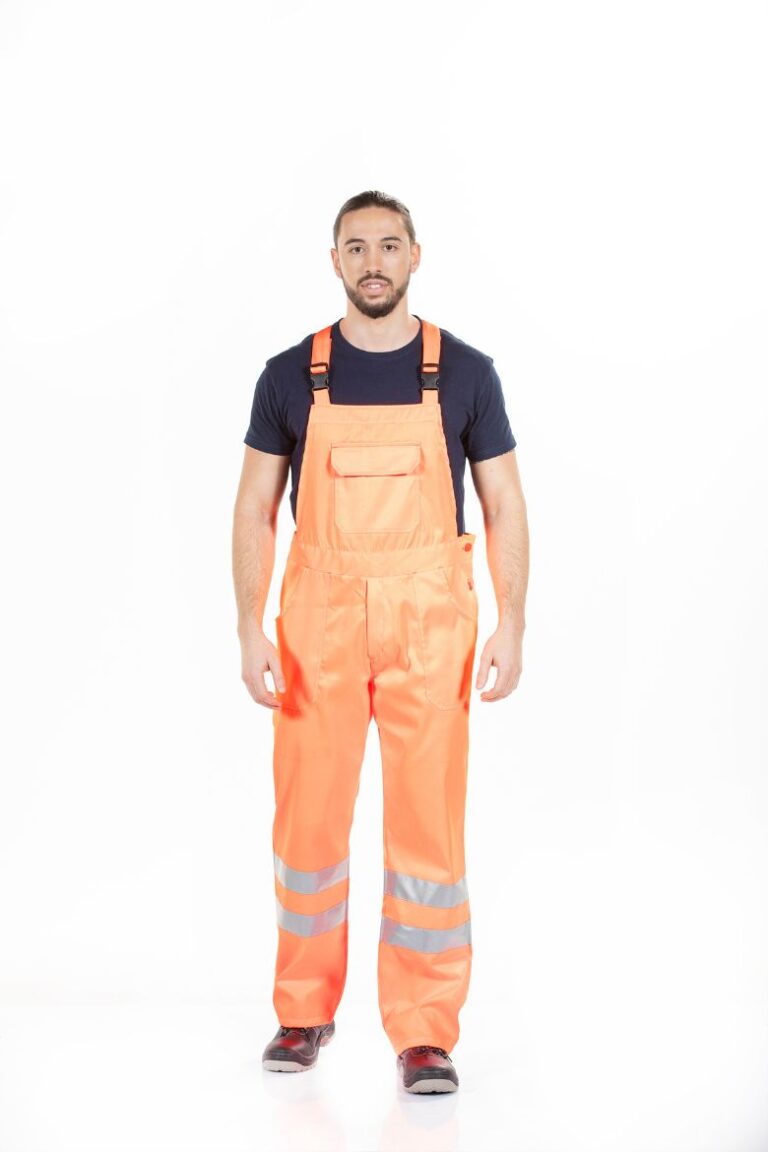
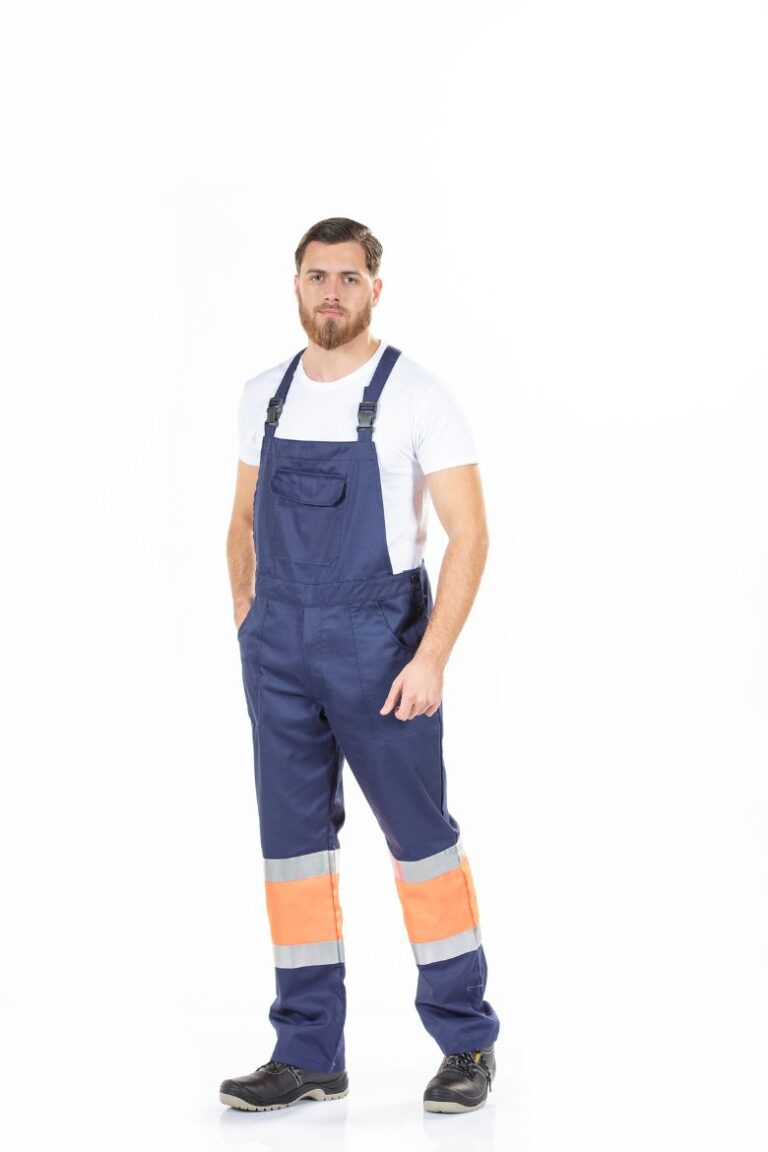
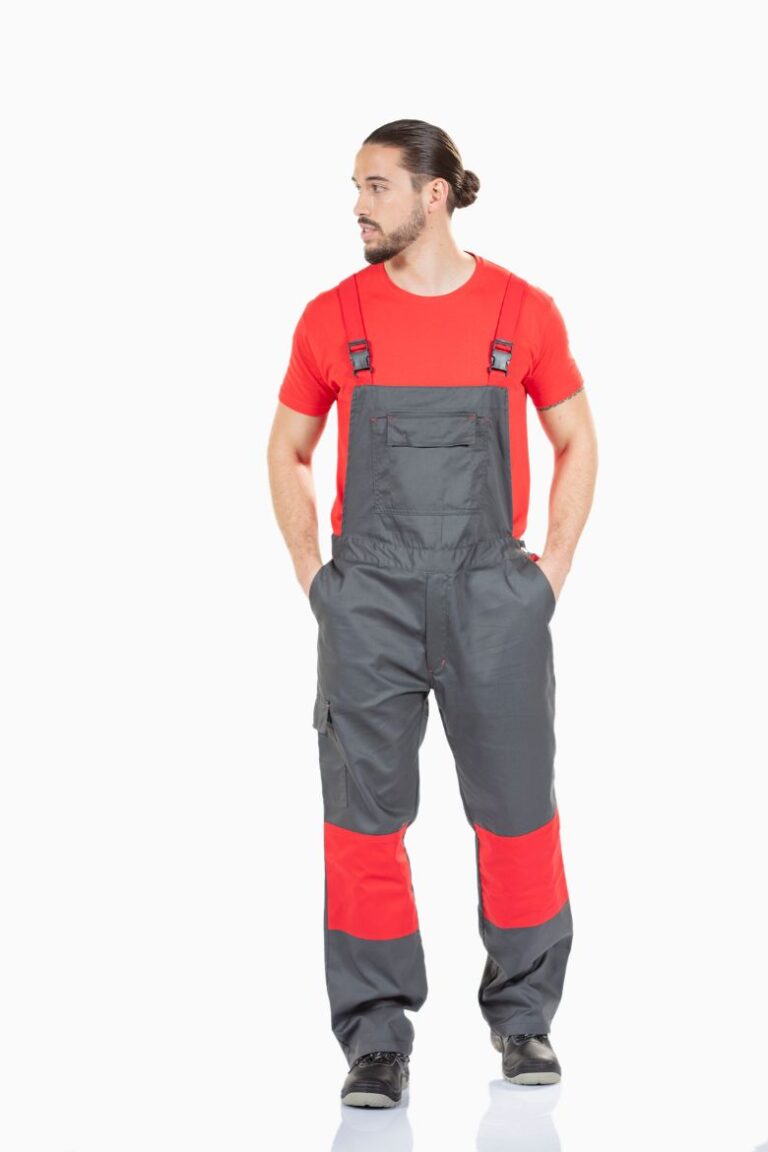
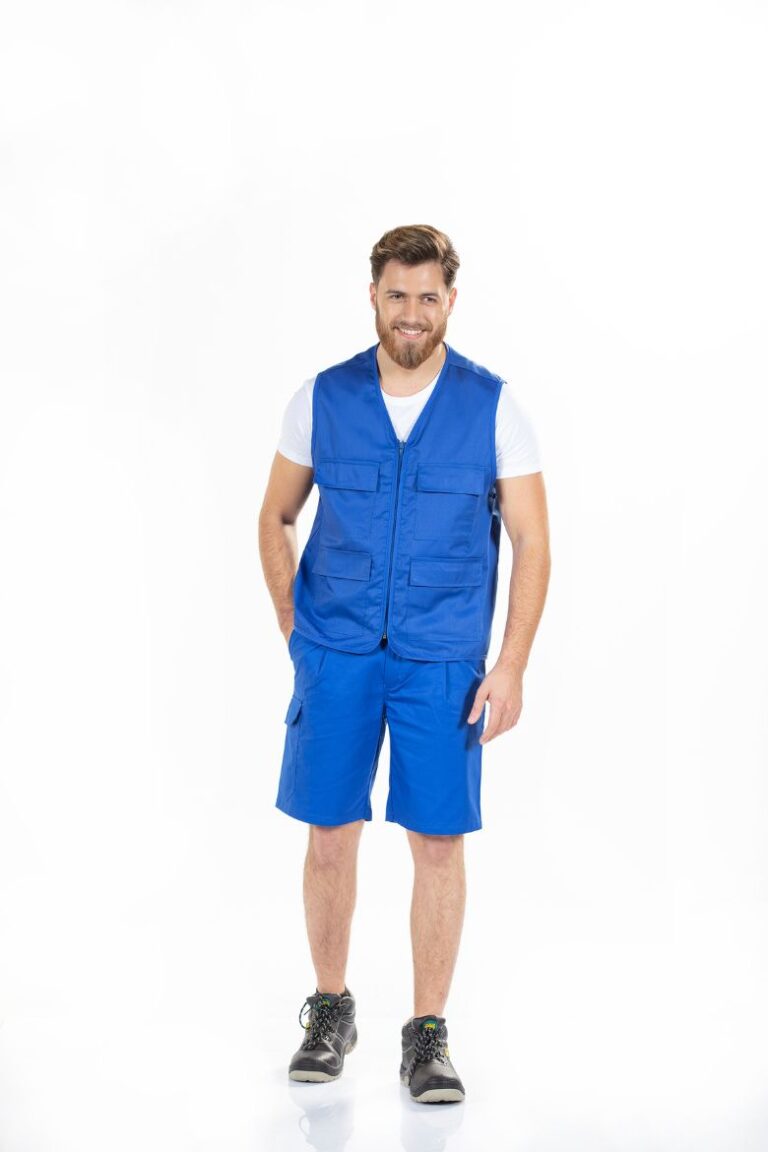
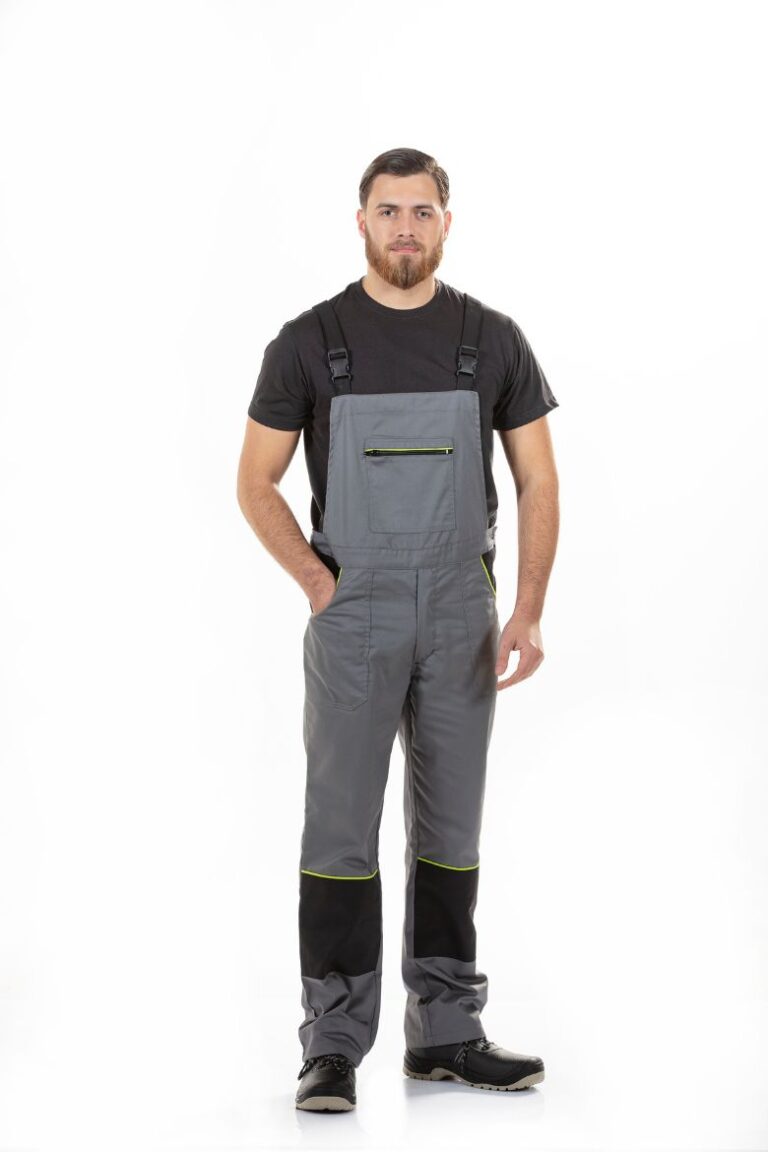
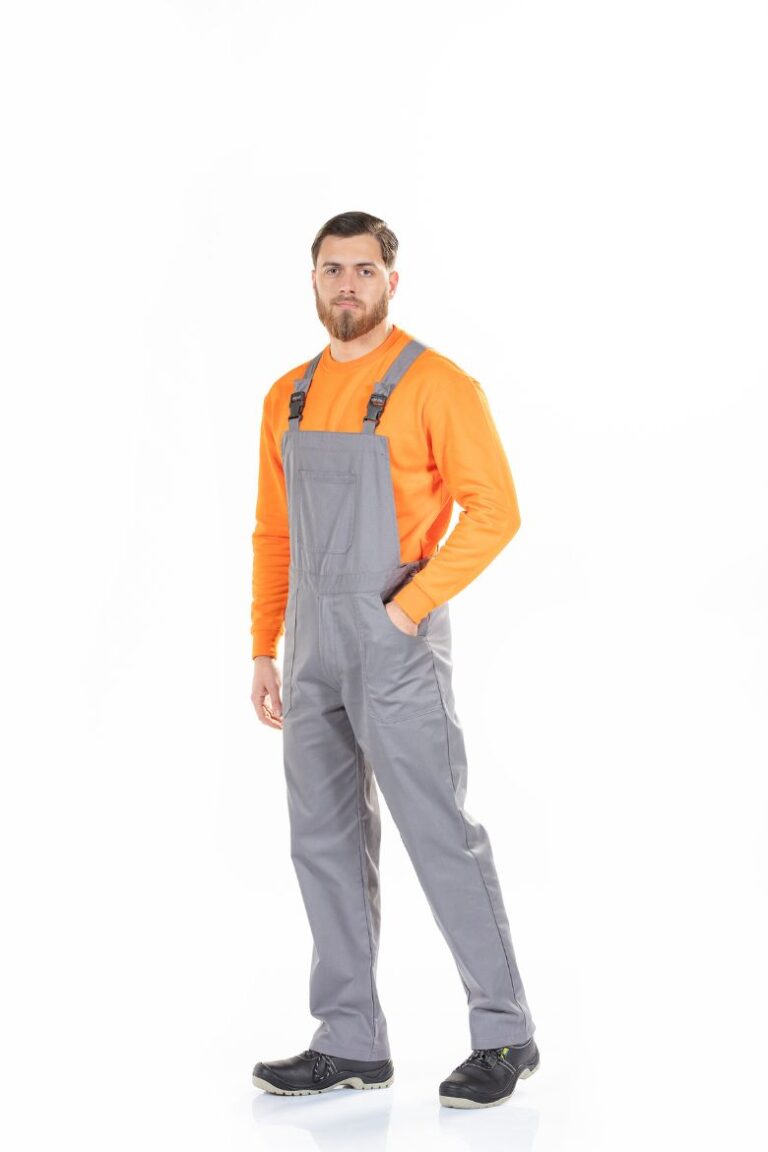
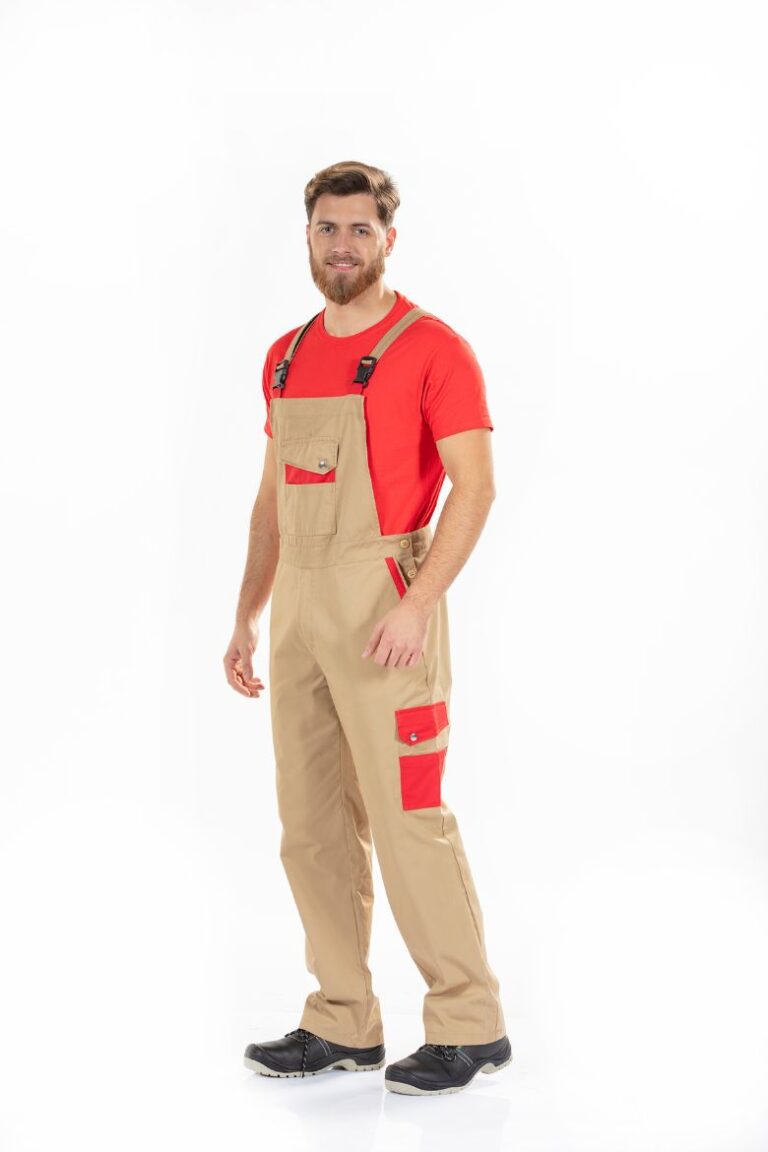
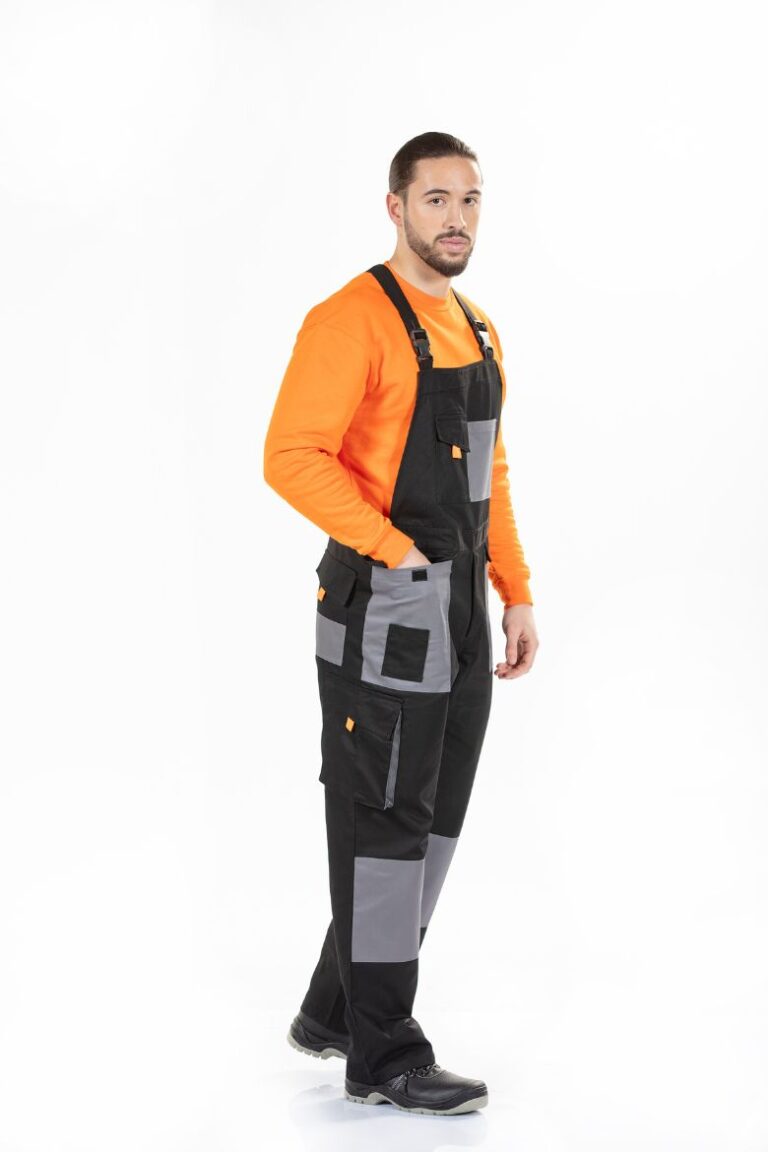
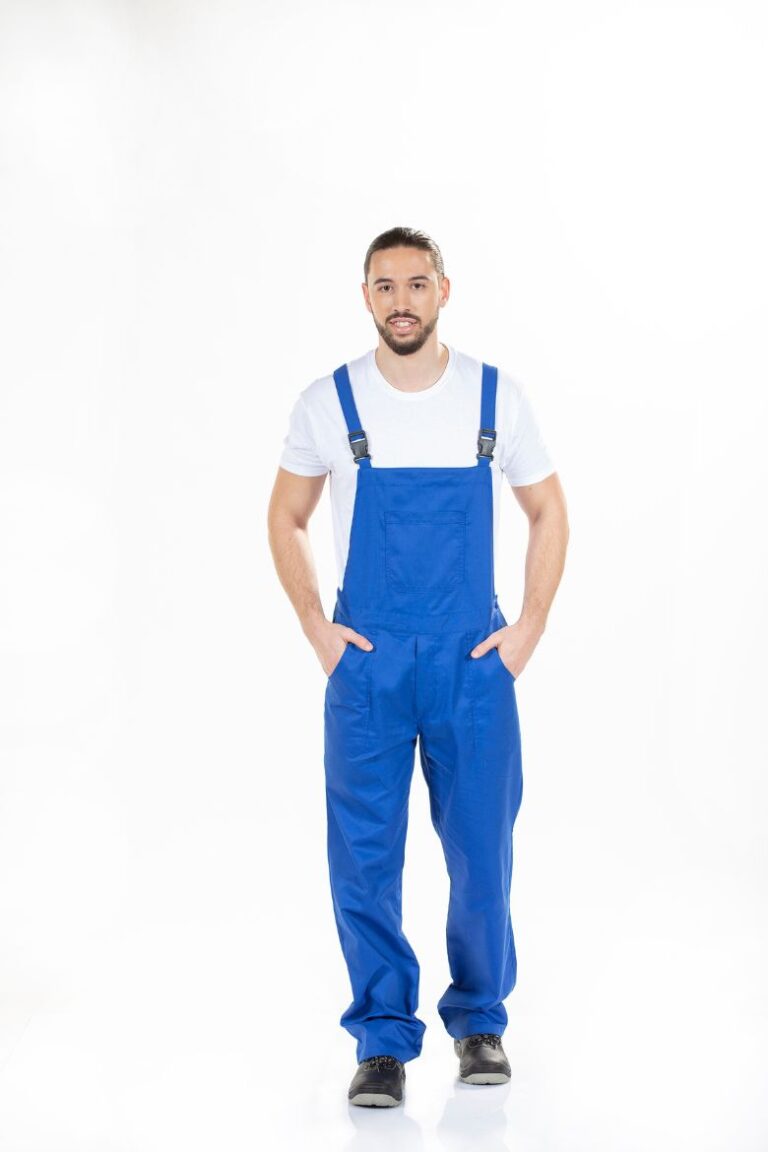
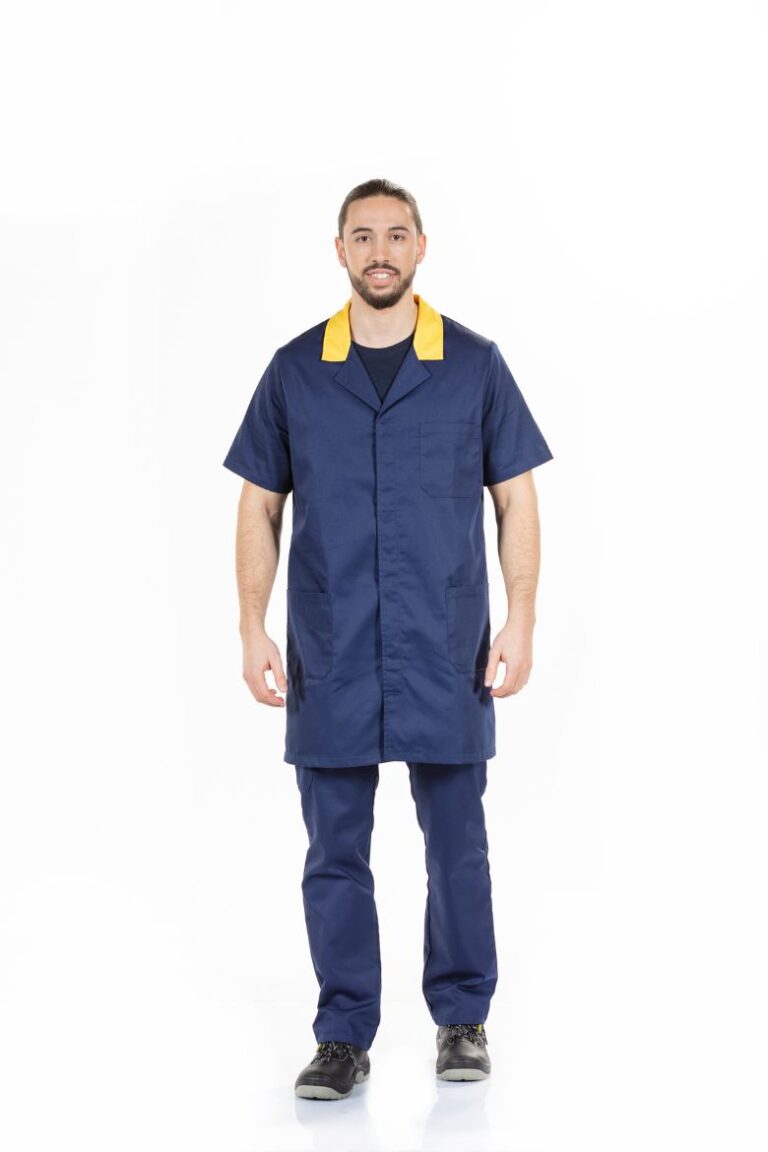
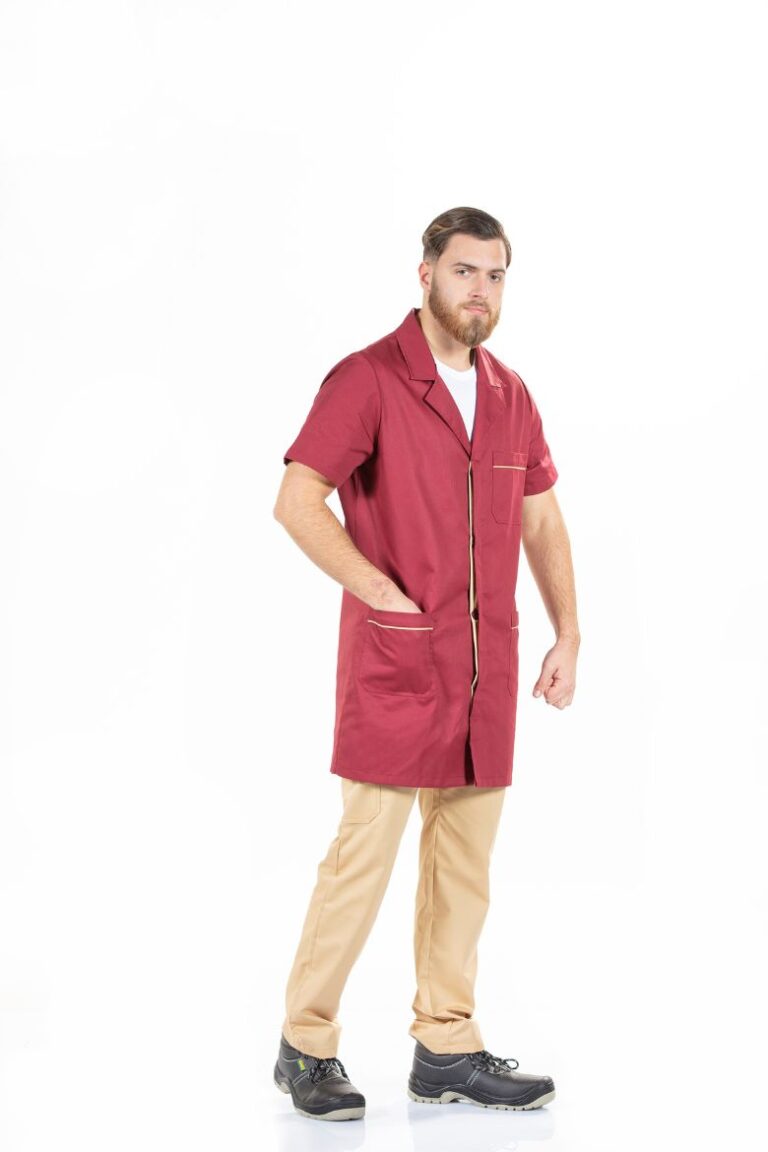
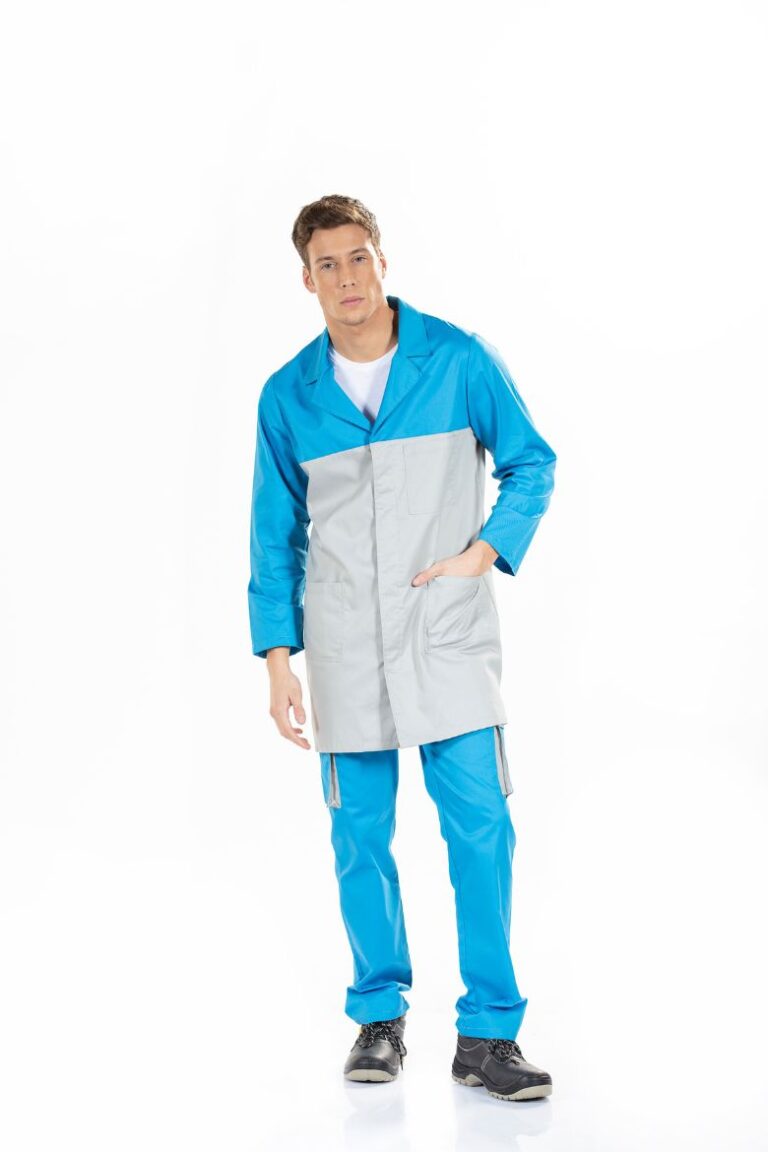
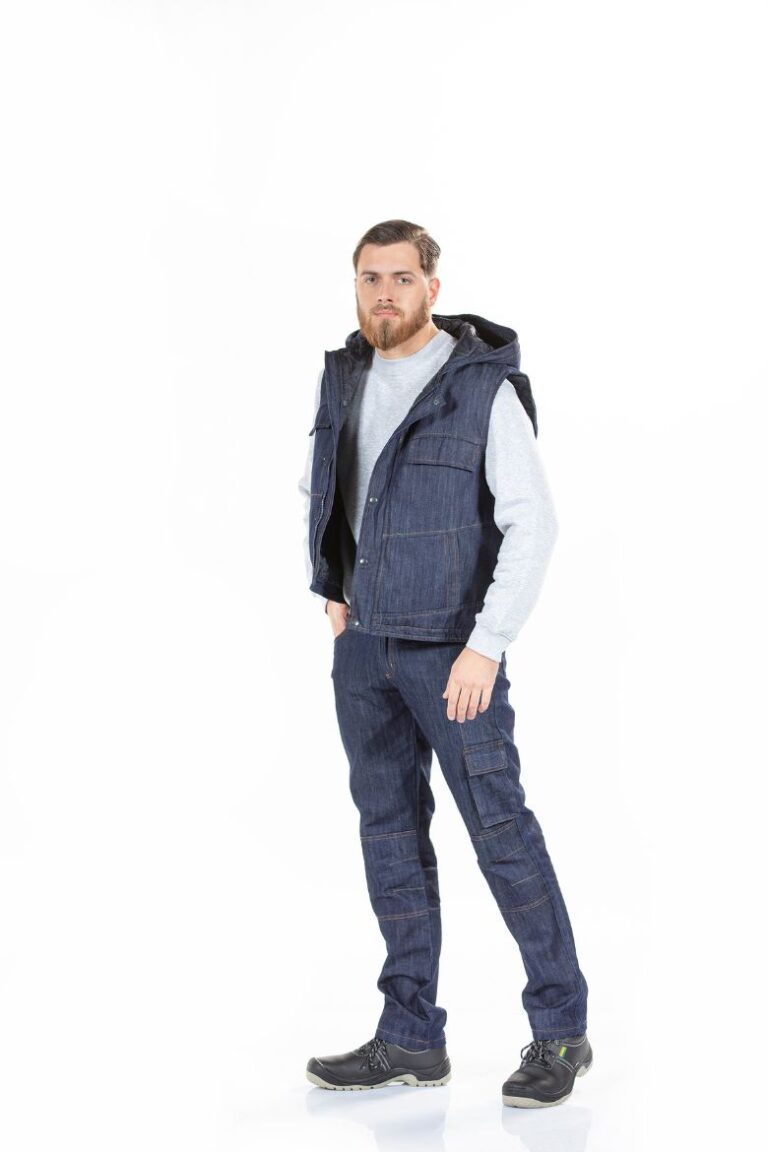
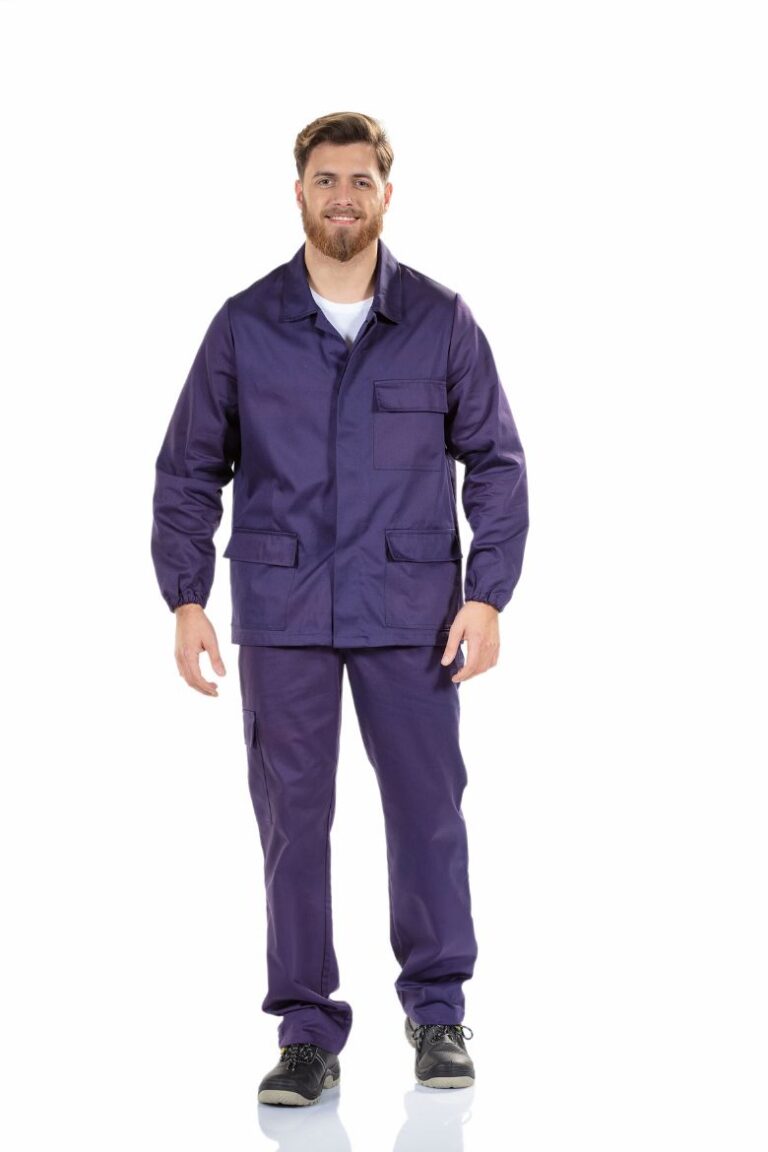
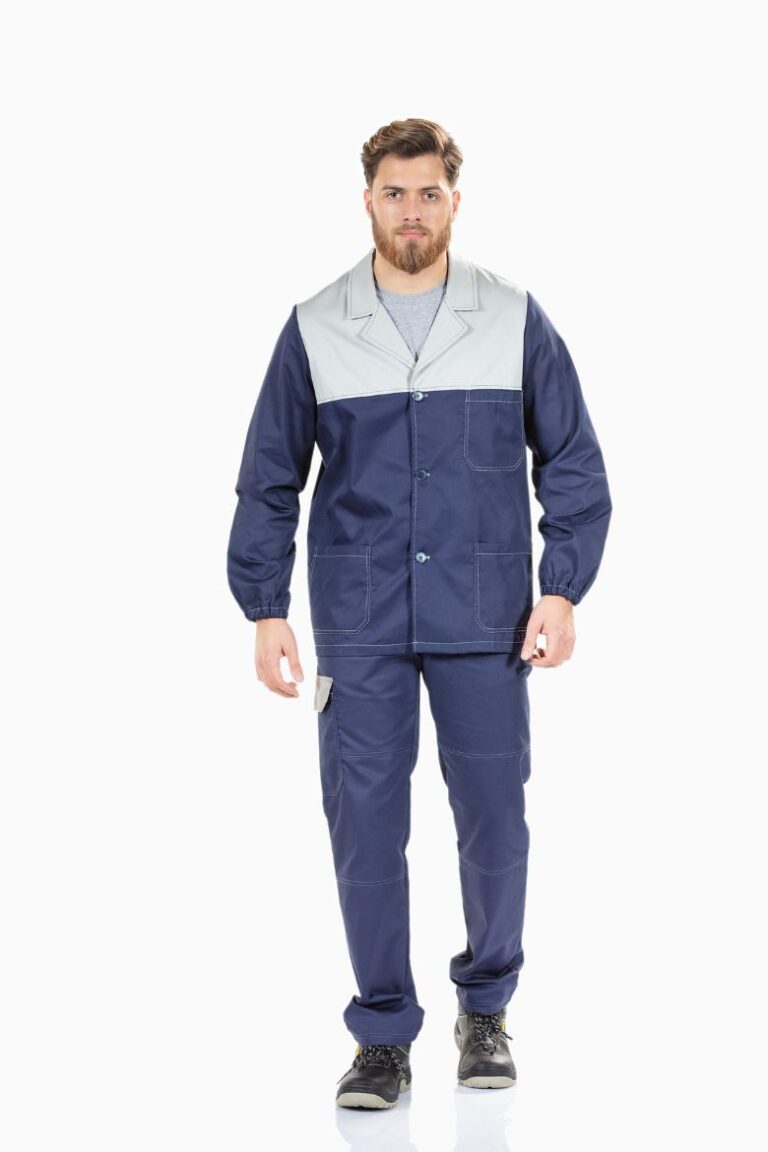
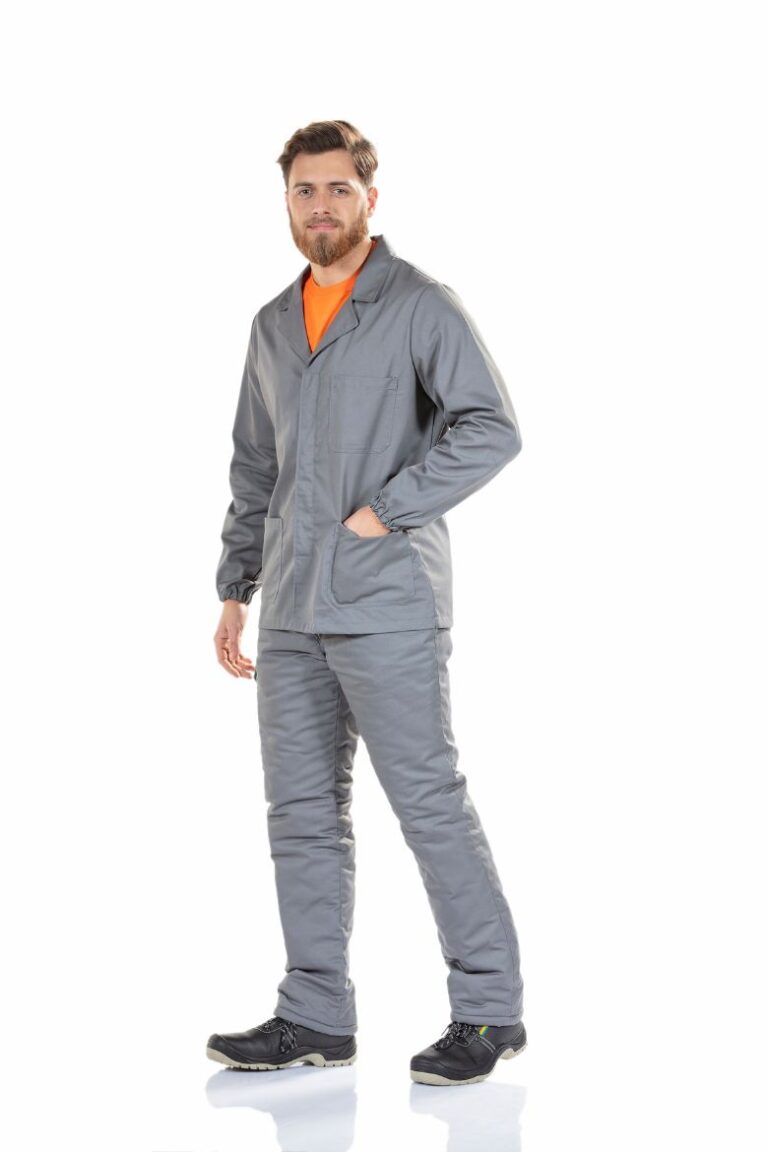
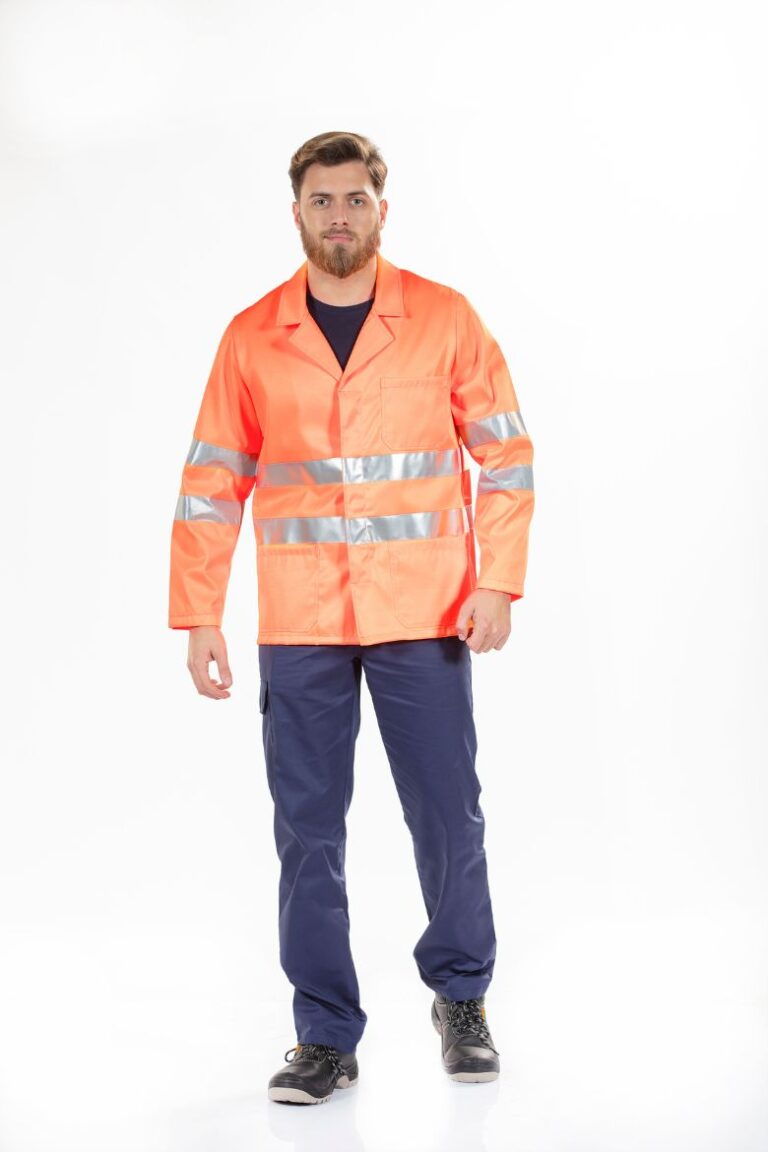
Products with visible prices are those that can be purchased immediately, online, without requiring minimum purchase quantities. This means you can explore our variety of options and purchase exactly what you need, with complete transparency regarding costs and the Professional Apparel model. On the other hand, products without a listed price function as a portfolio of possibilities. These items are highly customizable and can be tailored to each customer's individual specifications. To ensure quality and meet expectations, these products have a minimum order quantity and are subject to a custom quote process.
When selecting workwear for construction, several factors should be considered. Here are some essential considerations: • Protection: Safety is a primary concern in construction. The workwear should protect against various risks, such as falls, sharp objects, chemical splashes, and extreme temperatures. • Durability: Construction involves intense and demanding activities, so workwear should be made from durable materials resistant to tears, abrasion, and wear. • Comfort: Construction workers spend long hours performing physically demanding tasks. It is crucial that workwear provides comfort to allow free movement and reduce discomfort. • Mobility: Mobility is vital for construction workers, who need to move, crouch, stretch, and lift heavy objects regularly. The workwear should facilitate a wide range of movements without restrictions. • Proper Fit: Ensure that the workwear fits appropriately to the body of the workers. • Identification and Standardization: Consider using uniforms or standardized workwear to identify construction workers and promote a professional company image. • Ease of Maintenance: Workwear should be easy to clean and maintain. Check the washing instructions and ensure the clothing can be properly sanitized while retaining its quality and durability over time.
Uniforms or standardized workwear offer several benefits in construction: • Identification: Uniforms help differentiate construction workers from visitors, suppliers, or contractors, reducing confusion and ensuring more efficient access control on busy construction sites. • Professional Image: Standardized uniforms create a professional image for the construction company. Wearing consistent, high-quality workwear conveys reliability, seriousness, and commitment, which can be advantageous for clients and business partners, enhancing the company’s reputation. • Safety and Equality: Uniforms help maintain safety and equality among workers by providing the same level of protection and reducing discrepancies in appearance. • Regulatory Compliance: Standardized workwear often meets safety regulations, helping the company comply with industry standards. • Ease of Management: Standardized workwear simplifies management and monitoring of employees. Overall, using standardized workwear in construction enhances immediate identification, promotes a professional image, ensures safety, and contributes to a more organized and efficient work environment.
The construction industry is known for being a demanding and hazardous sector, where workers are exposed to various risks daily. It is essential that these professionals wear suitable workwear to ensure their safety and well-being. On this page, we will discuss the importance of wearing construction workwear, emphasizing the need for effective protection, extra comfort, and mobility.
Effective Protection: Worker safety is a priority in construction. Construction workwear plays a crucial role in protecting against the risks present in the workplace. It should be designed to offer protection against falls, injuries caused by sharp objects, chemical splashes, exposure to extreme temperatures, and other hazards. Durable materials such as heavy-duty cotton, polyester, nylon, and even aramid fibers are commonly used in manufacturing workwear resistant to tears and abrasion. Additionally, construction workwear may include features like reinforced areas (e.g., knee pads), reflective strips, and adjustable hoods to enhance worker safety.
Additional Comfort: While protection is crucial, comfort also plays a fundamental role in choosing construction workwear. Workers spend long hours in challenging environments, so it is essential that their clothing is comfortable enough to allow for task completion without restriction. Choosing lightweight and breathable fabrics such as cotton, polyester, and blends of technical fabrics can help maintain comfort even under intense working conditions. Additionally, features like strategically placed ventilation, adjustable closures, and ergonomic design contribute to the extra comfort of workwear.
Mobility: Mobility is a critical factor in construction, where workers need to move, crouch, stretch, and lift heavy objects regularly. Construction workwear should be designed to allow a wide range of movement without limitations or restrictions. The use of flexible fabrics and reinforced stitching contributes to proper mobility. Features such as elastic panels, knee pads, and adjustable cuffs are common in construction workwear, allowing workers to perform their tasks efficiently and safely.
Identification and Professionalism: In addition to protection and comfort, workwear in construction also plays a role in worker identification and in creating a professional image for the company. Wearing standardized uniforms with company logos and colors helps distinguish employees from visitors and promotes immediate team recognition. This also conveys a professional image to clients and the general public. By wearing appropriate and properly identified workwear, construction workers reinforce the company’s image as a reliable organization committed to safety and quality.
Compliance with Regulations: The construction industry is highly regulated in terms of occupational safety and health. Wearing appropriate construction workwear is often required by safety regulations and standards. Responsible and committed companies ensure that their employees comply with these requirements.
Regulations for Using Appropriate Construction Workwear:
Adhering to regulations regarding the use of appropriate construction workwear is essential. This not only helps avoid potential penalties and legal sanctions but also demonstrates the company’s commitment to ensuring a safe working environment for all.
Fostering Team Spirit:
Wearing standardized construction workwear promotes team spirit among workers. When employees wear the same uniform, they feel part of a cohesive group and share a common sense of identity. This can strengthen relationships between team members, increase collaboration, and improve communication on-site.
Conclusion:
The use of appropriate construction workwear is crucial in the construction industry. It provides effective protection against workplace hazards, offers additional comfort for workers, allows for proper mobility, and promotes team identification and professionalism. Moreover, wearing standardized workwear demonstrates compliance with regulations and fosters team spirit. Therefore, it is vital for construction companies to invest in high-quality workwear to ensure the safety and well-being of their employees while promoting a professional image in the industry.
Fardamento à sua medida.
Descubra as nossas
soluções.
Fardamento à sua medida.
Descubra as nossas
soluções.
To subscribe, please enter your e-mail address and click on “Subscribe”.
You can stop receiving our communications by clicking on the link in the footer of any of our newsletters.
Para efetuar a sua subscrição, por favor insira o seu e-mail e clique em “Subscrever”.
Poderá parar de receber as nossas comunicações, ao clicar no link para o efeito encontrado nos rodapés de qualquer uma das nossas Newsletters.
UNIFARDAS® supports Espaço T, which is an inclusive organisation, of all and for all, and our common goal is to increase employment opportunities for young people with special needs and/or who, for some reason, have been excluded from the labour market.
We work hard to provide safe working conditions by going beyond the imposed and mandatory minimums.
We support, nurture and offer continuous training programmes aimed at improving skills.
At UNIFARDAS® we keep up to date with the latest technologies and innovations that can optimise our production process making it more efficient and close to zero waste.
UNIFARDAS® is a partner of Espaço T, an inclusive organisation, of all and for all, with the common goal of increasing employment opportunities for young people with special needs and/or who, for some reason, have been excluded from the labour market. In this organisation, immigrants will also find a support network in finding work and housing.
In addition to the sustainable path we have been taking throughout our production and supply chain, UNIFARDAS® participates, supports and organises a beach clean-up every year after the bathing season, in partnership with World Clean-up Day. We are also partners of Seaqual, an entity that, together with some other partners, promotes the collection of ocean waste and its transformation into upcycled marine plastic that will then be used in the production of fabric and other sustainable products.
In addition to the sustainable path we have been taking throughout our production and supply chain, UNIFARDAS® participates, supports and organises a beach clean-up every year after the bathing season, in partnership with World Clean-up Day. We are also partners of Seaqual, an entity that, together with some other partners, promotes the collection of ocean waste and its transformation into upcycled marine plastic that will then be used in the production of fabric and other sustainable products.